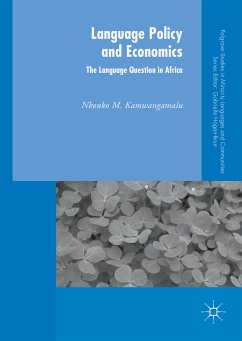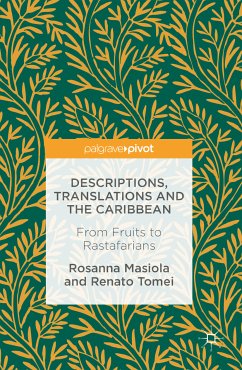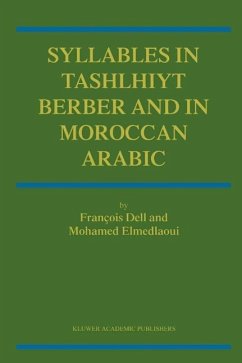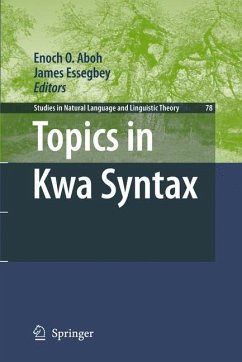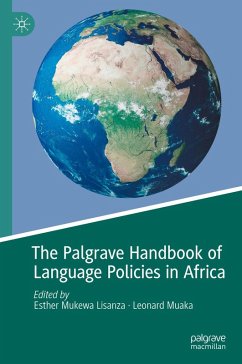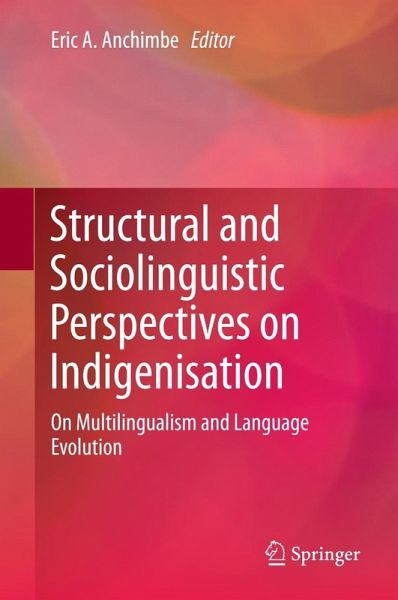
Structural and Sociolinguistic Perspectives on Indigenisation (eBook, PDF)
On Multilingualism and Language Evolution
Redaktion: Anchimbe, Eric A.
Versandkostenfrei!
Sofort per Download lieferbar
40,95 €
inkl. MwSt.
Weitere Ausgaben:

PAYBACK Punkte
20 °P sammeln!
Descriptions of new varieties of European languages in postcolonial contexts have focused exceedingly on system-based indigenisation and variation. This volume-while further illustrating processes and instantiations of indigenisation at this level-incorporates investigations of sociolinguistic and pragmatic phenomena in daily social interaction-e.g. politeness, respect, compliment response, naming and address forms, and gender-through innovative analytic frameworks that view indigenisation from emic perspectives. Focusing on postcolonial Cameroon and using natural and questionnaire data, the b...
Descriptions of new varieties of European languages in postcolonial contexts have focused exceedingly on system-based indigenisation and variation. This volume-while further illustrating processes and instantiations of indigenisation at this level-incorporates investigations of sociolinguistic and pragmatic phenomena in daily social interaction-e.g. politeness, respect, compliment response, naming and address forms, and gender-through innovative analytic frameworks that view indigenisation from emic perspectives. Focusing on postcolonial Cameroon and using natural and questionnaire data, the book assesses the salience of linguistic and sociocultural hybridisation triggered by colonialism and, recently, globalisation in interaction in and across languages and cultures. The authors illustrate how the multilingual nature of the society and individuals' multilingual repertoires shape patterns in the indigenisation and evolution of the ex-colonial languages, English and French, and Pidgin English.
Dieser Download kann aus rechtlichen Gründen nur mit Rechnungsadresse in A, B, BG, CY, CZ, D, DK, EW, E, FIN, F, GR, HR, H, IRL, I, LT, L, LR, M, NL, PL, P, R, S, SLO, SK ausgeliefert werden.





